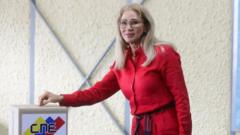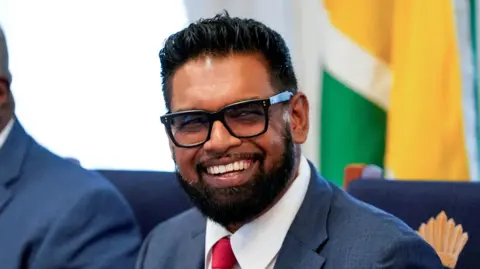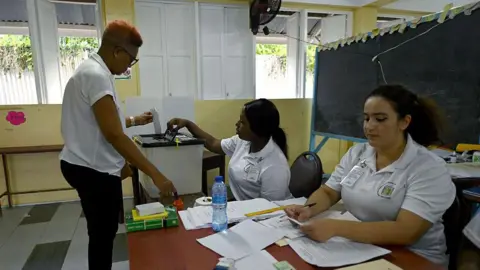According to the National Electoral Council (CNE), which is widely seen as a loyalist institution, the PSUV won 23 out of 24 gubernatorial races and secure 82.68% of the votes for the National Assembly. In contrast, opposition leader María Corina Machado labeled the elections a "farce," alleging that actual voter turnout was below 15%. Independent journalists observed low participation at polling stations, contradicting the CNE's reported turnout of 42.6%.
The opposition, long critical of the CNE's credibility, noted the absence of fair conditions leading up to the election, as well as a climate of repression that included the detention of over 70 opposition-linked individuals prior to the poll. Many key opposition figures, including Machado, faced significant repression following recent elections, including the exile of their presidential candidate Edmundo González.
While most opposition parties refrained from participation, a few, including Henrique Capriles, chose to run, prompting accusations of betrayal from boycott supporters. Regardless, the PSUV's victories were highlighted by Maduro as a mandate for "peace and stability." Only one opposition candidate, Alberto Galíndez, managed to retain a governorship in Cojedes state.
The election also involved controversial voting for representatives in the Essequibo region, an area claimed by Venezuela but administered by Guyana. Despite an International Court of Justice ruling barring such elections, Maduro's government proceeded, with significant implications for regional relations.
The recent voting events underscore a continuing cycle of political division and unrest in Venezuela, prompting questions about the future of democracy in the country. The legality and integrity of the electoral process remain a focal point of debate, reflected in the discord between government statements and opposition claims.
The opposition, long critical of the CNE's credibility, noted the absence of fair conditions leading up to the election, as well as a climate of repression that included the detention of over 70 opposition-linked individuals prior to the poll. Many key opposition figures, including Machado, faced significant repression following recent elections, including the exile of their presidential candidate Edmundo González.
While most opposition parties refrained from participation, a few, including Henrique Capriles, chose to run, prompting accusations of betrayal from boycott supporters. Regardless, the PSUV's victories were highlighted by Maduro as a mandate for "peace and stability." Only one opposition candidate, Alberto Galíndez, managed to retain a governorship in Cojedes state.
The election also involved controversial voting for representatives in the Essequibo region, an area claimed by Venezuela but administered by Guyana. Despite an International Court of Justice ruling barring such elections, Maduro's government proceeded, with significant implications for regional relations.
The recent voting events underscore a continuing cycle of political division and unrest in Venezuela, prompting questions about the future of democracy in the country. The legality and integrity of the electoral process remain a focal point of debate, reflected in the discord between government statements and opposition claims.




















